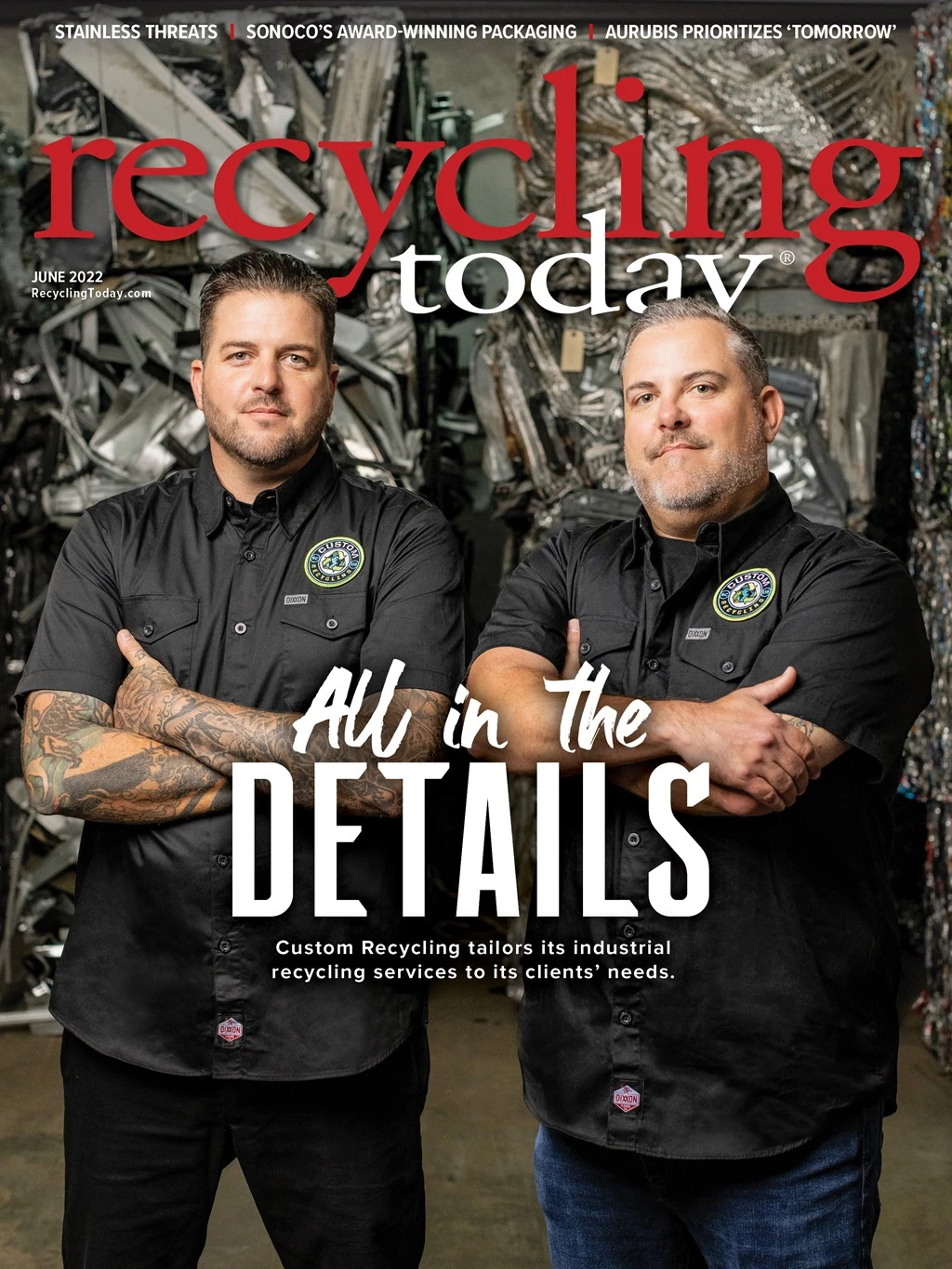Recyclers on the West Coast anxiously are awaiting the results of contract negotiations between the Pacific Maritime Association, a San Francisco-based group representing 29 ports along the West Coast, and the International Longshore and Warehouse Union, which represents 15,600 dockworkers at the ports. Negotiations began May 12, with the current contract set to expire July 1.
Sources on the West Coast say they are hopeful the talks will end favorably considering the bright spotlight on the negotiations after significant supply chain disruptions that have affected the movement of goods, recovered fiber included, across the U.S. and beyond since the onset of the COVID-19 pandemic.
“I think both sides understand that even more eyeballs are on them this time around just because of the supply chain; everybody knows what the issues were, have been and still are,” a paper packer based on the West Coast says. “I think they know that everybody is paying attention this time around.”
He adds, “The run-up to these negotiations has been the most tranquil I think we’ve ever seen. … Normally going into these things, there’s usually a little bit of a build—there’ll be a shot here and a shot there just to prep both sides for these things. This has been a really calm, very civil run-up to negotiations, which is, unfortunately, kind of unusual. ... But we’re pretty hopeful.”

A report by the Los Angeles Business Journal notes the major concern for shippers is that if talks bog down, it could exacerbate already fragile supply chains. The union, on the other hand, is focused on higher wages and automation that would eliminate jobs on the dock.
The West Coast paper packer says there have been good days and bad days at the port as of mid-May—an improvement from January and February, when there seemed to be exclusively bad days. “There are some days where all of our bookings work and all of our appointments work and we’re actually able to ship a bunch of containers,” he says. “[But] some days it’s just like, that booking got rolled till next week, that appointment’s no good anymore [or] we’re going to close the port early.”
Recovered paper pricing in Fastmarkets RISI’s Pulp & Paper Week May 5 issue shows no movement in most grades, including mixed paper, sorted residential paper and news (SRPN) and all high grades. A trader in the Midwest says he’s heard from one buyer who said premiums could start coming down in the next month or two, especially if the market holds steady again. But, because of the heavy demand for freesheet from tissue mills, he says premiums remain “pretty high.”
He adds, “I think there’s tons available, even though generation might have been down slightly. There’s still plenty of tons out there. I think the mills just aren’t consuming as many as we’d probably like, but that could change here in the next month or two.”

The trader also says he’s felt the effects of what’s happening in the export market in the Midwest, saying export is “all but gone,” with no indication of when it might return to more normalized levels. “If export were to come back in some capacity, that would just really disrupt the market big time,” he adds. “Domestic mills are basically fat and happy right now, but if they had to start competing globally, it could definitely drive prices up.”
With little-to-no movement in pricing, attention remains on the contract negotiations and if there might finally be relief as it pertains to moving the recovered paper supply building at some facilities.
“I can’t even tell you how critical this is,” the West Coast trader says. “The process is so complicated, and the whole process is geared toward import. How do we get all these ships that have all these goods coming in from Asia? How do we get them off that ship and unloaded and into the warehousing system? How do we get stuff on shelves for shoppers as quickly as possible? Meanwhile, us over here in export are like, ‘Hello? Remember us? Remember 20 years ago when you said to wine and dine us?’ We felt like a valued customer. Now we are just an afterthought, and it’s just brutal.”

Explore the June 2022 Issue
Check out more from this issue and find your next story to read.
Latest from Recycling Today
- ABTC reports production increase at LIB recycling facility
- ReMA contributes comments in Commerce Department investigation into copper
- WM to debut 4 recycling, RNG projects
- Celsa Group welcomes new Spanish investor
- Ferrous price hikes could be poised to pause
- BIR prepares for Spanish exhibition
- Copper exempted from latest round of tariffs
- Interchange Recycling's EPR stewardship plan approved in Yukon







